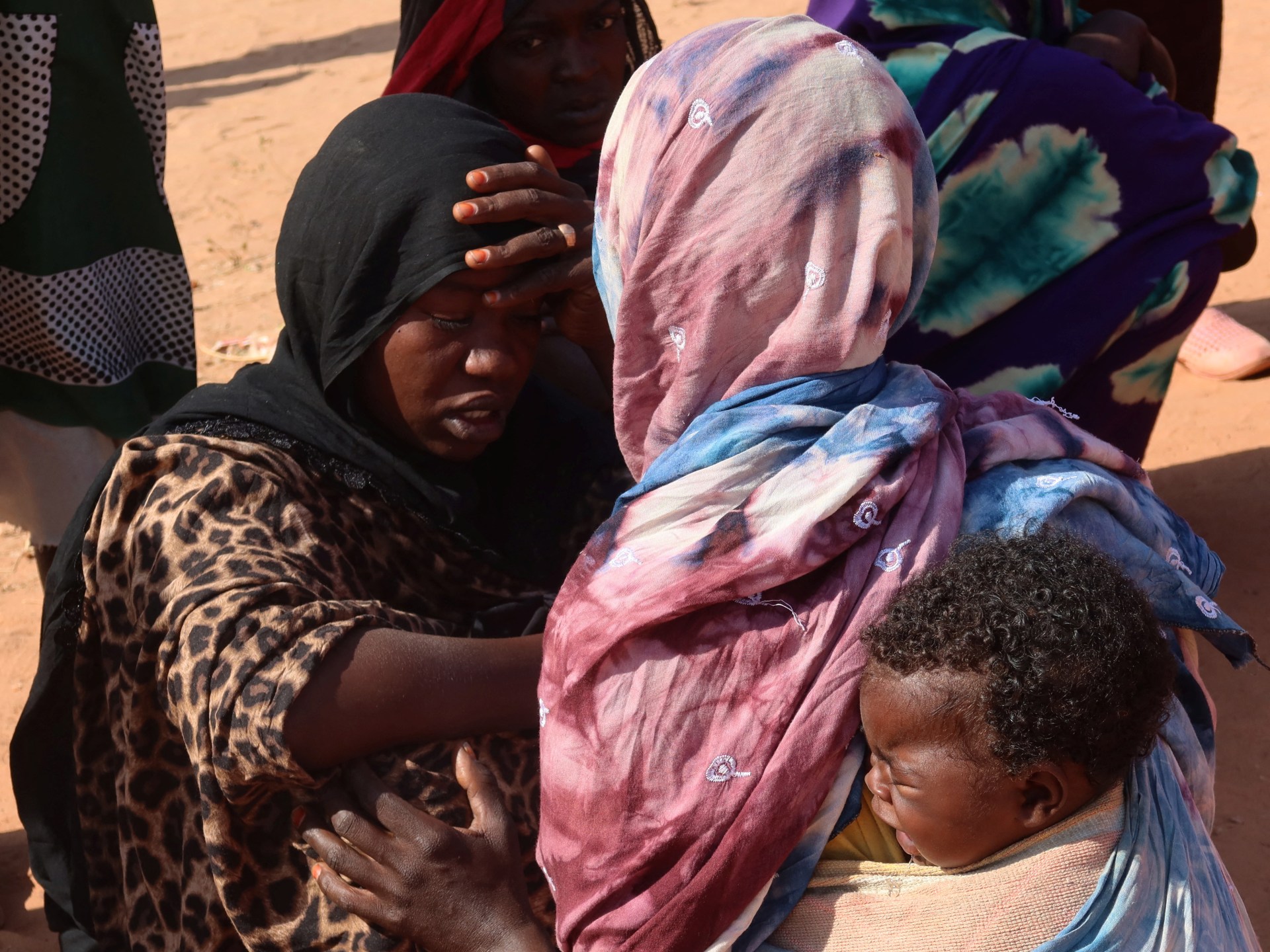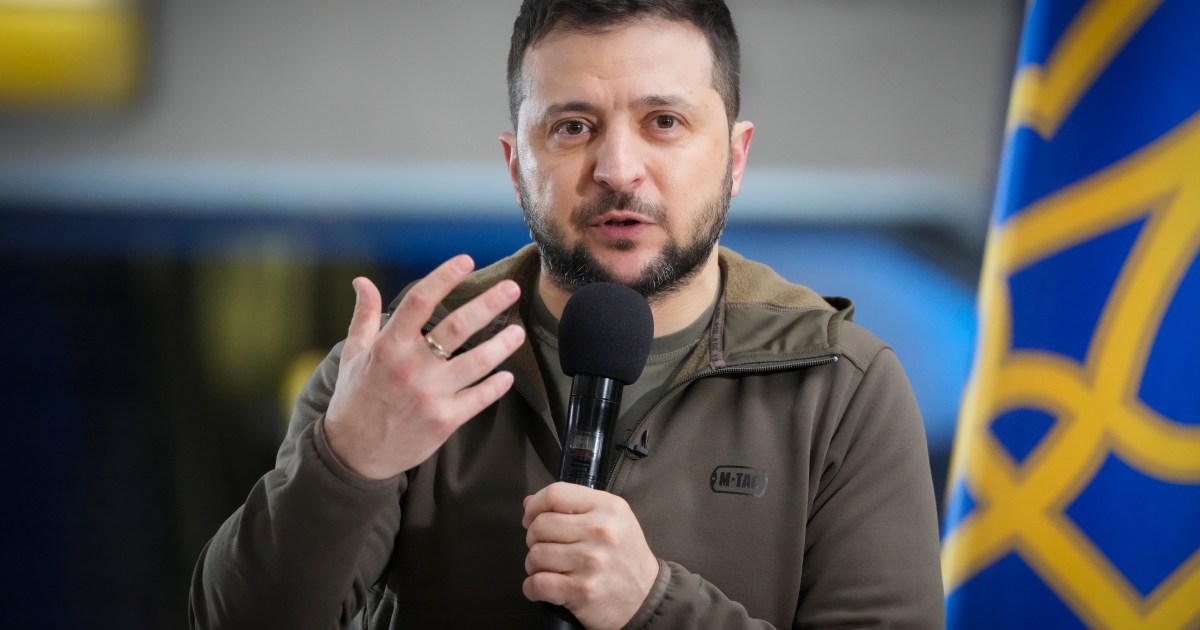‘I lost seven people’: South Africans mourn latest mine tragedy
Boksburg, South Africa – Carlos Tayima was watching football at the community sports centre in Angelo Tivani, a settlement of about 200 people just outside Johannesburg, when he got a call from a friend.
About a kilometre (0.62 miles) away, in the shack the Mozambican national has called home since moving to the community in 2007, his wife and daughter had died in a gas leak from a neighbouring shack.
“When we got the call, I immediately rushed to my house. We first wanted to close the [gas] cylinder, but the smell was too much. We could not get inside the shack,” Tayima, an electrician, told Al Jazeera.
When they eventually got in, he and other community members started checking for those who were still alive and laying out those who were dead one by one next to the bodies of his wife and daughter.
“I lost seven people who were living with me,” Tayima, 49, told Al Jazeera. “My sister and her two kids, then my wife and daughter and a couple who rented the backroom.”
According to officials and witness testimony, the shack was the site of a makeshift mine built by a group of zama-zamas, as illegal miners who scavenge abandoned mines across South Africa are known.
It sat between three other shacks where families lived. During the mine’s operation last week, a gas cylinder was accidentally opened, and it spread nitrogen to the neighbouring shacks.
In all, 17 people, including three children, were confirmed to have died within a 100m (328ft) radius. Of 10 people hospitalised, four are children, including a two-month-old, who officials said is now in a stable condition.
![Police officers inspect the scene of a suspected gas leak linked to illegal mining, in the Angelo shack settlement, near Boksburg, east of Johannesburg, South Africa July 6, 2023 [Siphiwe Sibeko/Reuters]](https://www.aljazeera.com/wp-content/uploads/2023/07/2023-07-06T082415Z_1553264764_RC2JX1ACSHHN_RTRMADP_3_SAFRICA-GAS-CASUALTIES-1688996695.jpg?w=770&resize=770%2C513)
‘A warzone’
The Institute of Security Studies estimated that at least “30,000 illegal miners work in and around thousands of disused and active mines across South Africa”, costing the country an estimated 21 billion rands ($1.1m) annually in lost sales, taxes and royalties.
Some of these miners are financed by criminal gangs that also engage in arms trafficking and money laundering.
Gas leaks are common. On May 18, 31 illegal miners died from a methane explosion in Free State province, but this was not discovered until more than a month later. The miners were migrants from Lesotho, whose government reported the incident to South African authorities.
The latest accident happened on Wednesday in an informal settlement along the Witwatersrand Gold Reef, where gold was discovered in 1886. When informal settlements like Angelo sprout on Johannesburg’s outskirts, they are often next to a mine or over one.
Emergency Management Services (EMS) spokesperson William Tladi reported having found an empty gas cylinder used “to extrapolate what is said to be gold from the soil”.
Initially, EMS officials counted 24 dead with no one hospitalised, but a recount later confirmed the death toll as 17. Authorities are yet to confirm if the miners were among the dead or their whereabouts but South African police are investigating the incident.
The premier of Gauteng province, Panyaza Lesufi, visited the scene on Wednesday night and called for a special crime unit to respond “as if we are in a warzone” against criminal gangs who engage in illegal mining.
Sivuyile Ngodwana, mayor of Ekurhuleni municipality, pledged his support to families of the deceased and victims of the gas leak. He appealed to residents to report any illegal mining in their communities.
In a statement on Thursday, President Cyril Ramaphosa called for an investigation “to get to the bottom of what may have caused” the gas leak, while expressing condolences for the “tragic loss of innocent lives”.
“We are going to be focusing on that [illegal mining] and addressing it quite prominently,” Ramaphosa told the media on Sunday.
‘It’s painful’
Before officials arrived at the site, it was locals like Alcido who helped “pull out piles of bodies” from the illegal mine and neighbouring shacks.
The 39-year-old street hawker was drinking at a tavern in the settlement that night when a woman holding a baby burst in, coughing and choking after inhaling toxic gas.
Alcido told Al Jazeera that he ran with his drinking buddies to the makeshift mine. They found a family of five dead but helped rescue a woman and her child who are still in the hospital.
“It was hard getting those people out of there. We were taking them out not knowing if they were alive,” Alcido said.
Syfred Manaka, another resident of Angelo, also rushed to the scene to join the rescue efforts after receiving a call from friends about people dying in his area.
“We used wet towels on our faces when we entered the shacks,” the 40-year-old told Al Jazeera.
Since the gas leak, shacks around the mine have mostly been deserted while neighbours are in the hospital or mourning their loved ones.
Some residents are still in a state of shock. One of them, Atalia Manyisa, was sick on Wednesday. She found out only two days later about the incident and that her partner Daniel Zandamel was among the dead, she told Al Jazeera.
For Tayima, staying in shock is a luxury he cannot afford right now.
“I don’t feel well,” said the electrician, who has since returned to work. “It’s painful.”



